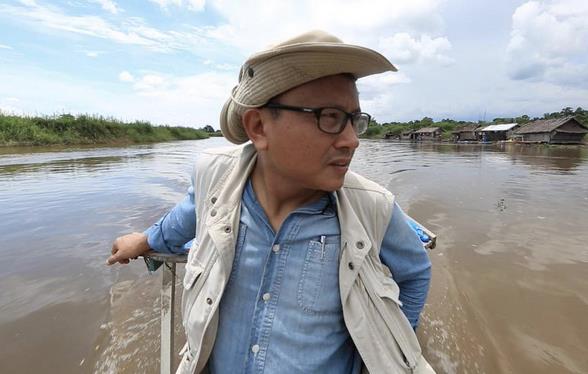
“I am one of the lucky ones who have been able to go home, resume a semblance of my former life, and live to tell the tale.”
Broadcast journalist Howie Severino opened up on his battle with the coronavirus disease. In a personal essay published on GMA Network’s website, Severino wrote a few of his takeaways from overcoming the illness and becoming a COVID-19 survivor.
“I’m Patient 2828 in the lower part of the curve — have a responsibility to talk about this experience in a way that will enable the public to understand it, lessen the fear, and create compassion for those who survived COVID-19,” the GMA News pillar said.
His first takeaway is to make transparency an obligation. Severino said it is only fair to anyone who has had close contact with a COVID-19 positive case.
“For the greater good, we are required to disclose our COVID-19 status to the Department of Health. Contact tracing can go a long way in preventing its further spread,” he said.
Severino said he personally informed his close neighbors of his condition. Thankfully, they reacted with compassion.
The 58-year-old award-winning journalist highlighted that the illness does not need to be lonely. Despite being in isolation, he was able to receive social support from his friends and family through group conversations.
“The most someone can do for a COVID-19 patient is to stay in touch online,” he advised.
He added that patients do not need more pity. Severino shared that one of his “memorable moments of relief” was when a friend told him a hilarious story.
“Share family news, your playlists, jokes and memes, anything that can offer a respite from the constant reminders of our condition. We do not need more pity,” he said.
Despite falling ill and being confined for nine days in the hospital, he assured that contracting the virus is not a death sentence.
“The odds of survival are pretty good,” he ensured, adding that many of the recoveries do not get counted.
During his time in the hospital, he admitted he was “delirious with visions of death crossing his mind.” Thankfully, his wife guided him in dispelling the dreadful thoughts.
“Don’t underestimate the power of the mind,” he stressed.
“Frontliners are true heroes, but many more have chosen to stay out of harm’s way,” was his last takeaway from the experience.
He said that he has partnered up with a young nurse in creating a documentary about the life of a frontliner. The apprenticeship kept his mind active and gave him comfort that even in isolation, he was still getting his work done.
In the end, he assured that he will donate the antibodies in his blood that will help others fight off the infection if he has them.